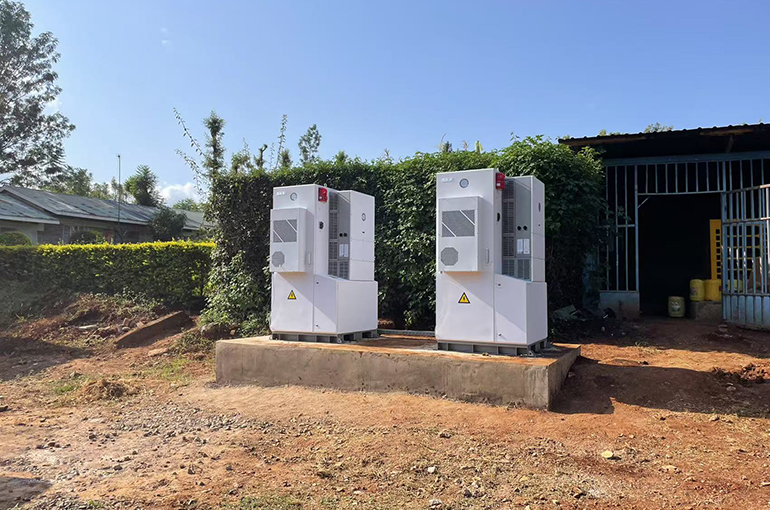 Competition in Africa's Solar Power Sector Heats Up as Chinese Investment Rises
Competition in Africa's Solar Power Sector Heats Up as Chinese Investment Rises(Yicai) Aug. 1 -- Competition in the photovoltaic power industry of some African countries has intensified since the beginning of the year, as more and more Chinese firms are investing in the continent to seize opportunities from its massive electricity shortage.
Chinese companies, both small enterprises and large corporations, have flocked to the African PV market after several countries introduced policies to attract investment. For example, South Africa simplified approval procedures for PV projects, and Morocco has been offering land and tax incentives for renewable energy projects.
"African consumers prioritize price and practicality over brand and quality, leading to intense low-price competition," said Huang Yan, head of the Kenyan business of Sanjing Electric, a Chinese maker of solar and energy storage inverters.
The price of a 5 kWh energy storage battery has dropped to USD400 from over USD1,100 in 2023, Chen Xiaohui, the head of Sanjing Electric's local business, told Yicai.
The potential of Africa's power generation market is huge, so Chinese PV firms should continue to deepen their presence on the continent, accurately matching their products with market demand and finding a balance between competition and risks, such as long payback periods of industrial and commercial projects, according to experts.
A 500-kilowatt solar project to power a supermarket requires an investment of CNY300,000 to CNY400,000 (USD41,610 to USD55,480), with a maximum annual income of about CNY96,000 (USD13,315), meaning that the payback period is more than three years, Chen explained.
Moreover, African government-funded projects are usually paid in installments due to countries' financial constraints, making most Chinese companies cautious.
Chinese investors need strong financial foundations to accept projects from African governments. They should be able to afford an initial capital investment of no less than CNY50 million (USD6,900), have a working capital of over CNY300 million (USD41.6 million), and carefully consider local policies, market demand, and costs.
Africa's electricity shortage is severe. Over 80 percent of the world's population without access to electricity lives in Africa, according to data from the World Bank. About 600 million people in sub-Saharan Africa live without electricity, relying on firewood and expensive generators to meet basic needs.
Even more developed African countries suffer frequent power outages. Industrial and commercial electricity tariffs in South Africa are about CNY1.6 (22 US cents) per kilowatt-hour, more than double that in China, Chen noted.
"Underdeveloped grid infrastructure means off-grid power supply is needed in remote areas, such as mining zones," said Jia Yongyan, a Chinese businessman working in Africa. "The high cost and immobility of grid construction have deterred investors."
International institutions, such as the World Bank and the African Development Bank, have pledged at least USD50 billion to provide electricity to 300 million Africans by 2030. Despite that, over 400 million people in sub-Saharan Africa are expected to remain without electricity by then.
Editor: Futura Costaglione